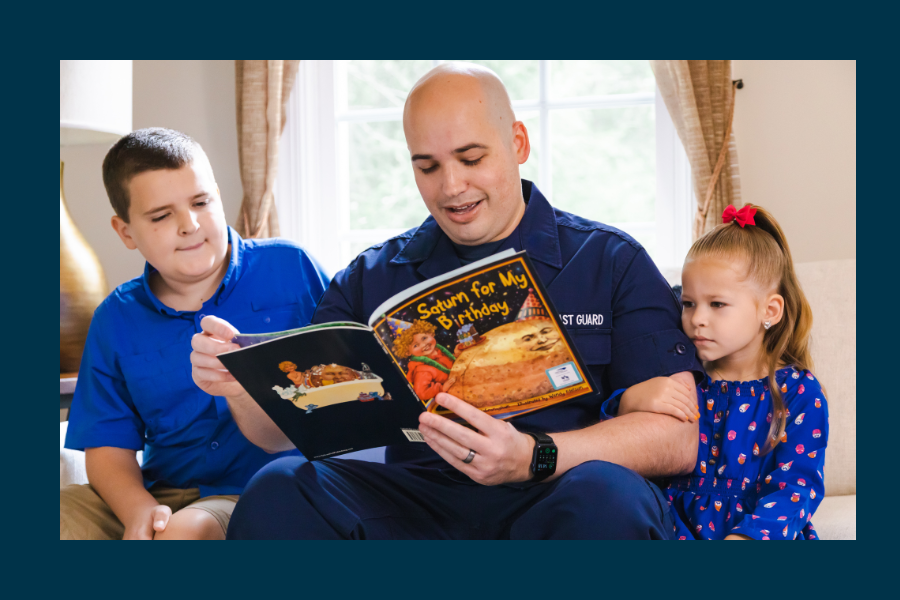The advantages of shared reading experiences with your child are profound and lasting. Some key benefits include language development, cognitive development, increased empathy and understanding, a lifelong love for reading, and stronger family bonds. From infancy to the teenage years, parents can play a crucial role in instilling a passion for books and literacy in their children.
Start Early: Reading to Infants and Toddlers
The foundation of a child’s reading journey is often laid during the earliest years. Here are some strategies to get you started:
-
- Create a Reading Routine: Establish a daily reading routine, even with your infant. Reading a short board book before nap or bedtime provides comfort and familiarity, setting the stage for a lifelong reading habit.
- Point and Engage: While reading to your little one, point at pictures and words to help them make the connection between spoken language and printed text. Engage them by asking simple questions about the story or the pictures.
- Choose Interactive Books: Opt for interactive books with textures, flaps, or sensory elements that allow your toddler to touch and explore. These books stimulate their senses and make reading an exciting experience.
Encourage Curiosity: Reading with Preschoolers and Early Elementary Kids
As your child grows, their curiosity and vocabulary expand. Encourage their curiosity and love for reading with these strategies:
-
- Ask Open-Ended Questions: While reading together, ask open-ended questions like, “What do you think will happen next?” or “Why do you think the character did that?” These questions spark critical thinking and discussions.
- Visit the Library: Take your child to the local library regularly. Let them explore and choose books that pique their interest. Libraries often host storytelling sessions and activities that can further engage your child in the world of books.
- Be a Role Model: Children often emulate their parents. Let your child see you reading regularly. Share your thoughts about what you’re reading and discuss books as a family.
Foster Independence: Reading with Intermediate School Children
During the intermediate school years, children start reading independently but still benefit from shared reading experiences:
-
- Create a Family Book Club: Pick a book as a family and read it together. Set aside time for family discussions about the book, allowing everyone to share their thoughts and interpretations.
- Expand Their Horizons: Encourage your child to explore different genres and authors. Visit bookstores, attend author talks, or join reading challenges to diversify their reading experience.
- Support Critical Thinking: Encourage your child to think critically about what they read. Ask them to summarize a chapter, predict what might happen next, or analyze the characters’ motivations.
Maintain Connection: Reading with Middle Schoolers
Middle schoolers often have busy schedules, but reading together can still be a powerful bonding experience:
- Choose Relatable Material: Pick books relevant to your child’s interests, whether a particular subject, hobby, or genre. This makes reading feel less like a chore and more like a leisure activity.
- Discuss Contemporary Issues: Many books for this age group deal with complex themes. Engage in conversations about these topics, allowing your child to express their opinions and explore different perspectives.
- Balance Independence and Guidance: Respect your child’s growing independence as a reader, but remain available to provide guidance and discuss their reading choices.
Empower Decision-Making: Reading with Teens
As your child enters their teenage years, it’s crucial to empower them in their reading choices and provide a supportive environment:
- Create a Home Library: Encourage your teen to build their own library of books. Let them choose and curate their collection, giving them ownership of their reading preferences.
- Explore Diverse Voices: Encourage your teenager to read books by diverse authors, tackling various cultural perspectives and experiences.
- Share Your Reads: Continue sharing what you’re reading and ask for book recommendations from your teen. Discussing books can strengthen your bond and introduce new titles to both of you.
Looking for a great list of books that you can search by age group? Check out UTR’s Book Recommendation list here.
Our Literacy Tips are presented by Reader’s Digest Foundation.

